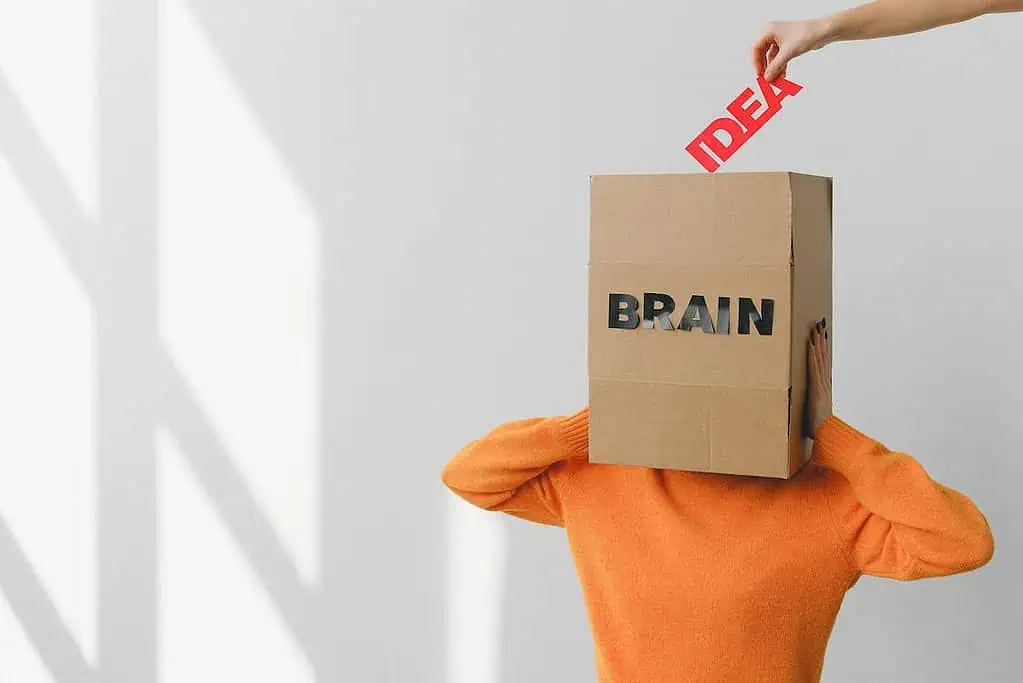There are a lot of expectations for adults to grow up and think about the economic culture of their country. Or to work for a long period of their life in the hope of creating a crucial difference in the world. There are so many people doing this all around the world, and in this process, adults lose their beginner’s mind.
Now, more than ever we have an overwhelming need for people to come back to the truth of the present moment. To be a true beginner at life, and to be curious about learning new skills. People need to return to the basic learning lab that they experienced as a child and reconnect with their inner child’s mind. This is where new possibilities, inspiration, and perspectives can be born.
We have enough grown-ups on this planet, what we need is more creative beginners. Each person was born unique, and the question is, how can each person keep their uniqueness throughout their lifetime?
Here we will take a look at how adults lose their beginner’s mind and how one can get their beginner’s mind back. When you learn to activate your beginner’s mind, you can use it for the best intention of the human race.

Contents
What is the beginner’s mind?
The beginner’s mind is a place where we all begin. It is the mindset of children and their unquenchable thirst for knowledge. Most children are constantly making things happen and streaming a spotlight of consciousness through their minds and out into the world. In a natural state, a child wants to play, create, and think about the world in an entirely different form than adults do.
A child’s mind tuned into the voice of the child’s heart simply wants to read half a dozen books or climb a dozen trees. The child’s mind doesn’t need cognitive reasons to do things, it simply just does. This is the crucial difference between a child’s mind and an adult’s thinking process.
The beginner’s mind is a concept taught often in Zen Buddhism. In this practice, life is about being in the possibilities of the present moment. The point of being in the moment is to experience life fully and that’s why we all need to embrace more of the beginner’s mind.
When you embrace the beginner’s mind, you can imagine going back to being a child. Assume nothing, accept that there is no such thing as right or wrong, and talk about new ideas and new possibilities. Imagine that you enter a new phase of a learning lab where cognitive development is based on exploration and you have your mind tuned into that of a child. Adult life dismisses play, but when you are in a child’s mind, you can invite this play back into your life.
As a child, what you learn works differently from what you see as an adult. All the things you experience for the first time are an experience of wonder and an opportunity to work on cognitive development. If you want to see this in action, simply talk to children or surround yourself with a group of children for a while and watch their cognitive reasons for play and for fun!
Benefits of using the beginner’s mind
Using the beginner’s mind invites you to lose all sense of intellectual and economic culture. Let go of the notions of what is wrong, and instead, accept that brains change. We are all human children at heart and we can tap back into our inner child’s mind any time we need.
There are some amazing advantages when using the beginner’s mind:
- You will start to look at new skills as an opportunity to learn. Life becomes a learning lab.
- You think about many possibilities from a different perspective.
- You will be open to finding better relationships with more meaning and value.
- You will be fully present with your mind tuned into what’s happening around you.
- You will be open to hearing guest suggestions and listening rather than thinking you know it all.
- You will discover new ways of thinking about the world and the human race.
- You will realize that in every single moment there are new possibilities to create social change.
- You will find resources in new places.
Slowly, those who work with the child’s mind will start to see their brains change.
Why do adults lose the beginner’s mind?
There are strong preconceived notions that adults are meant to be focused (and interested) in the intellectual and economic culture of the human race. Due to this, people tend to focus on world affairs and adult conversation topics to prove that they have a deeper understanding of the world. But in this focus on intellectual and economic culture, we forget to focus on fun.
From an early age, we teach kids in school to be quiet, to sit still, and to be well-behaved. In this way, we are conditioning their brains to change toward being sensible.
The modern world prizes efficiency over authenticity. As a human race, we are habit hardening in all the wrong ways. We are encouraging social change by having a conversation about intellectual and economic culture. We are forgetting to have a conversation about what brings us joy, or what the spiritual point of life is.
In our search for money, we have forgotten about the search for consciousness. As adults, we talk about technology and robots of the future. But we forget to talk about the qualities of our human children who have a sense of joy and could be the next greatest teachers of our generation. Isn’t that a sobering thought?

The value of intellectual and economic culture
Intellectual and economic culture is of value to the human race. We need one part of the global mind tuned into these topics to develop in the areas of technology and to create social change.
But in this world that prizes efficiency and dismisses play, we need to be reminded of our roots. For this, we can turn to Alison Gopnik, who has some great suggestions for us to rethink our own consciousness and the consciousness of children.
Working on Cognitive Development
To understand modern research in cognitive development, we need to look at Alison Gopnik. Alison Gopnik is a professor of psychology and philosophy at the University of California, Berkeley, where she runs the Cognitive Development and Learning Lab for children. Her Learning Lab conducts studies about how children’s brains change and develop. She also researches spotlight consciousness and habit hardening. Alison Gopnik has written half a dozen books about the beginner’s mind, including one titled ‘The Philosophical Baby’. On her website, you will find these books.
Alison Gopnik thinks children are the leading minds of the future. She takes their minds seriously and strives to understand them better. Gopnik’s work invites adults to think like children. Because Alison Gopnik thinks children have a lot to teach us. She thinks that children should even be classified as a whole other type of homo sapiens, because of their unique ability for cognitive development.
She is part of a great episode on the Ezra Klein show, a podcast that discusses many current topics. From this episode:
“Here’s a sobering thought: The older we get, the harder it is for us to learn, to question, to reimagine.” – Alison Gopnik
Alison Gopnik also claims that “a mind tuned to learn works differently from a mind tuned to exploit what it already knows.” Throughout her dozen books, including the Philosophical Baby, you will see the themes of the ‘beginner’s mind’ and how we can utilize the way of children to create more than just habit hardening, but a way of living.
Forming a habit – How to get your beginner’s mind back!
So now that you know what the beginner’s mind is, it is time to ask how to get your beginner’s mind back.
As a human race, we need to start thinking differently. We need to put our own brains through the beginner’s mind learning lab to bring the Philosophical baby principles to life.
Here are a few tips on how to activate your beginner’s mind:
- Accept and celebrate that brains change! This can be used to your advantage.
- Understand the cognitive reasons social change is happening. Decide whether you want to be a part of that social direction or if you want to celebrate your differences.
- Stop tuning into the world that prizes efficiency and dismisses play. Instead, create time and space for yourself.
- Practice mindfulness by being aware of what is happening around you.
- Work on habit hardening by reminding yourself to use your beginner’s mind in new situations.
- See the world through new eyes, open a new tab in your brain and take time to explore everything like it’s the first time you are seeing it.
The key to developing your beginner’s mind is to use it as frequently as possible!

Frequently Asked Questions:
What is the beginner’s mind?
Using your beginner’s mind is like using an entirely different form of thinking. It means seeing the world with new lenses. To do this you can let go of your adult attitude, and instead, use the mind of your inner child. See everything like it’s the first time you are looking at it.
Does everyone have the ability to use a beginner’s mind?
Yes! With practice, anyone can re-find their beginner’s mind. It was a part of you when you were born, it was a part of you when you were a child, and it is still a part of you now.


